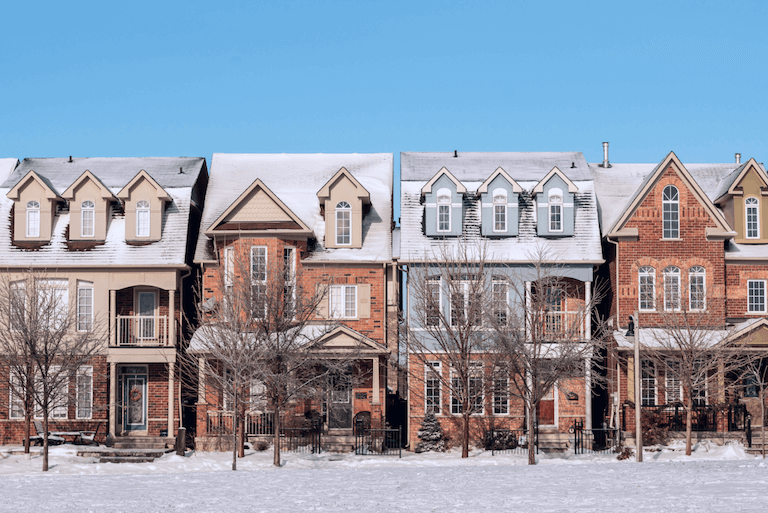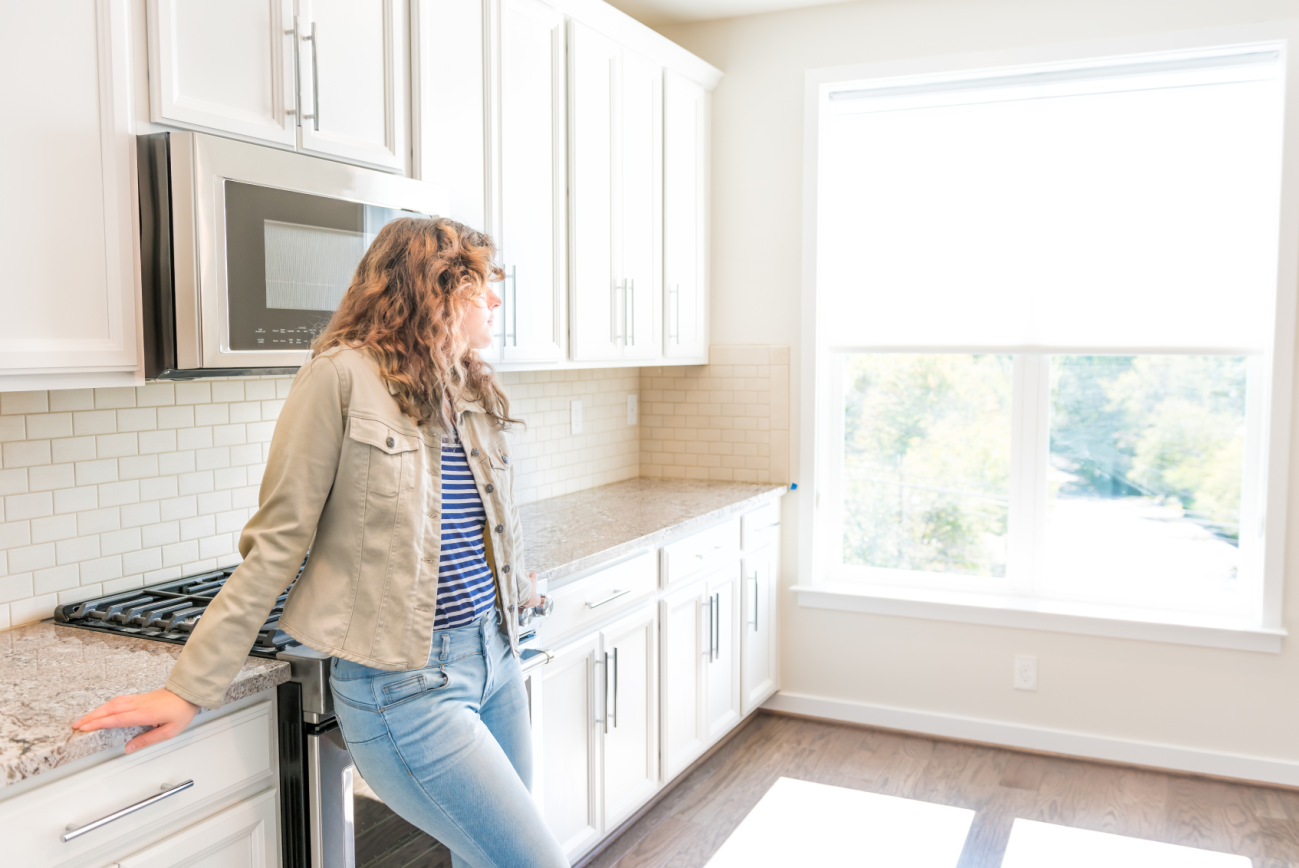If you’re buying a home in winter, you may have noticed that there is less market activity, likely due to weather conditions, limited daylight and holiday-season distractions. However, by knowing the advantages, disadvantages and factors to consider, you can make sure you find the right home for you—for every season.
Understanding the real estate market in wintertime
The winter months are typically a quieter time in the real estate market. This usually means fewer homes for sale, which results in less choice. However, there is also less competition among buyers, which means you’re more likely to have your offer accepted. In fact, the average sale price is usually lower in the winter, which makes you more likely to snag a deal you may never have gotten in the busy spring market.
Furthermore, you have to consider a seller’s motivation to list in winter rather than in the typically more lucrative spring or summer months. A winter listing may mean they’re interested in selling quickly, providing you with more leverage in sales negotiations.
But a quieter market doesn’t just impact the price of your home; buying a house in winter can also mean more time for your less busy real estate agent to focus on you and your needs.
Scheduling viewings when buying a home in winter
When you’re buying a house in winter you may need to be a little more strategic about viewings. When the weather makes in-person visits more challenging, you can lean on online resources, including virtual tours and detailed property listings. This way you can be more selective about the properties you’d like to see in-person. Remember that daylight hours will be more limited during winter, so try to schedule viewings during the brightest part of the day.
You should also think about how weather could impact the home’s accessibility. Keep an eye on the forecast for the day of your viewing and try to give as much notice as possible should you need to cancel because of weather conditions.
Assessing energy efficiency when buying a home in winter
Buying a house in winter, during the colder months, provides a great opportunity to assess the home’s energy efficiency, insulation and heating systems. Of course, you’re going to want to pay attention to whether the home feels warm when you go inside, but you should also look for signs of winter damage, such as leaks, ice dams or drafts. These could all indicate a much bigger, not to mention costly, issue, so you want to be aware of them before you buy.
In addition to doing your own assessment, you can—and should—ask the current owners about how easy it is to heat the home and also how much it usually costs. A house with new insulation or windows is going to be more energy efficient and less costly to run, so invite the seller to share any features which could have an impact on the comfort of the home and your monthly outgoings.
You should also take note of any features within the home, such as whether there’s a functional fireplace, its running costs and how it may help to lower your utility bill.
Note that all of these factors will be professionally assessed by your inspector if you decide to make an offer. However, those inspections can be more challenging in the winter, since weather conditions can make the home less accessible and consequently delay the closing process.
Considering location when buying a home in winter
In addition to the inside of the home, you should also think about the home’s location and whether there are any seasonal amenities, such as ski mountains, that make it a good fit for you. Proximity to some of the world’s best snow sports may be important to you and some mountain resorts even offer locals discounts for passes, which may be an additional perk.
As with any home search, you should also consider the accessibility of local services, such as schools and amenities. In winter it’s especially important to think about how these could be impacted by inclement weather. Ask the seller about their experience living in the home during the colder months. For example, could snow make your commute more difficult or even impossible? Consider different scenarios and how the weather could impact your daily life in the home.
Looking beyond the weather when buying a home in winter
Homes will look different depending on the season, which is why spring is often considered one of the best times of year to showcase a home in its best light. However, even in overcast or snowy conditions, winter can have its own charm, too. When looking at the home from the outside, think about whether the home looks warm and inviting. Then try to visualize living there in every season. The outdoor deck may be less of a priority now, but it will likely be a real benefit come the warmer months. While it’s important to know the home is going to work for you in the winter, ultimately you want to make sure that your home is right for you year-round.
Moving tips when buying a home in winter
When buying a home in winter, the same moving tips still apply, such as contacting movers for quotes well in advance, deciding on your moving strategy, budgeting your move and making a moving timeline. However, in winter you may want some additional contingency plans for any weather-related delays. Whether you’re using professional movers or doing it yourself, you’ll want to consider access to your current and new property. Consider whether there are any conditions, such as ice or snow, that could make a move difficult and then come up with a backup plan in a worst-case scenario.
In winter, it will also be especially important to contact the utility providers for your new address a few weeks in advance to provide your information and your move-in date. This way, you know you’ll have access to the services you need, like heating and electricity, once you’re in your new home. After all, the last thing you’ll want to deal with on moving day is a cold, dark house.
You will also want to consider the weather when you’re packing your bag of immediate essentials for moving day. You may want items, such as extra warm clothing, blankets, slippers and a couple of mugs for warm drinks to be easily accessible and to help you settle in!
Key takeaways for buying a home in winter
Buying a home in winter has its advantages and disadvantages, just like any other time of year. Supply may be lower and moving in the colder months may incur more costly logistical challenges. However, you also get a less competitive market and may get a better idea of the home’s energy efficiency and overall livability. And ultimately, when you know the factors to consider, finding the right home for you is really not dependent on the time of year.
Houseful is here for your next steps
From getting your keys to getting back on the market—and all the days in between—Houseful is here to help you keep an eye on the big picture. Let’s see what’s possible and take the next step toward fulfilling your home ownership goals. Visit houseful.ca.




